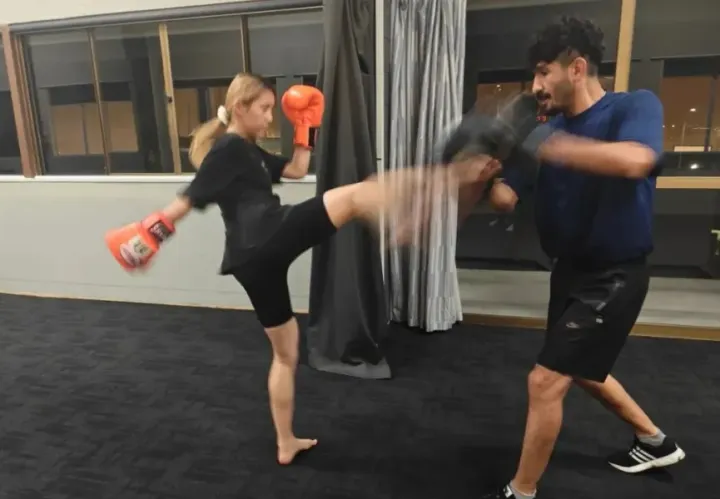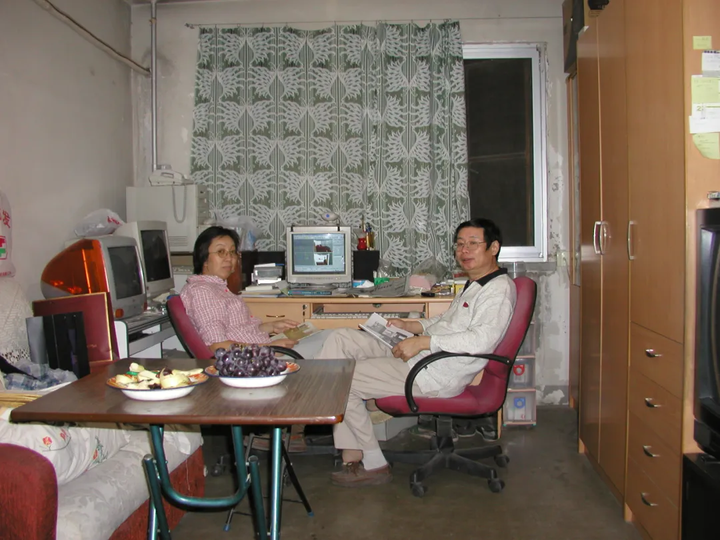From Dreams to Reality: The Journey Begins for 1,000 Chinese Working Holiday Applicants to New Zealand

Staff Writer: Yiyi Xie
Image Source: Supplied
Today marks the day New Zealand opens 1,000 working holiday visas (WHVs) for mainland Chinese applicants. Many hopefuls had been preparing since the early hours of the morning.
As usual, the Immigration website experienced its typical "crash."

However, with agencies stepping back from the race this year, some reported that the scramble for spots was a bit less intense. While the site still crashed, it managed to complete its task.

For the first time in recent years, many applicants secured their spots independently—a feat nearly impossible in previous years.

Of course, not everyone was lucky; a large number walked away empty-handed.
The 1,000 visa slots were quickly snapped up, and before long, the Immigration website displayed the message that all spots were filled.
With that, the WHV application process for this year has concluded, and 1,000 young Chinese are set to embark on a new adventure in New Zealand. The magic of working holidays lies in the uncertainty—no one knows exactly what path they’ll walk.
This issue, we interviewed three women—Aria, Evelyn, and Tete—who are either in Shenzhen, China, New Zealand, or Malaysia. What they have in common is the WHV experience. They provide a snapshot of different stages of working holiday life and share their current reflections.
WHV Progress 0%: Secretly Applying Behind Her Parents’ Backs
The first time we talked to Aria, a Gen Z graduate, was on social media in a countdown to her New Zealand WHV—100 days until departure.

Aria is heading to New Zealand this September for a working holiday, and she has meticulously planned every detail of her journey: saving 50,000 yuan, improving her English fluency, finding travel partners, and learning new skills.
In fact, Aria had secured her WHV last year, but her parents strongly opposed the idea of her traveling so far. With the visa expiring in September this year, she felt she could no longer wait.

A 2022 graduate with an English degree from a university in Wuhan, Aria—like many English majors—found her future unclear. She had been a disciplined student, but the real world left her feeling disoriented.

She worked briefly as a administrator in Wuhan, making spreadsheets and earning around 4,500–5,000 yuan a month. The long hours and mandatory overtime pushed her to the edge.
"I was told, ‘If you want to make money, don’t be a administrator. And if you want to be a administrator, find one with decent work-life balance.’ That advice woke me up," Aria says. She was 22 at the time.

She tried various paths—postgraduate exams, teaching qualifications, job hunting in big cities—but the competitive landscape left her feeling insignificant. Despite her parents' hopes for her to become a teacher or a civil servant, Aria headed to Shenzhen with a rebellious plan.
Shenzhen became her temporary escape as she plotted her WHV journey to New Zealand.
“There’s not much difference between working in Shenzhen and New Zealand—either way, I’ll barely see my family,” Aria explains.

Last year, she secretly applied for the working holiday visa, hoping to explore the world, meet new people, speak fluent English, and return home to teach after a year. “My parents are in China, and I’ll eventually return, but I don’t plan to let them know about this year abroad.”
Of course, Aria understands the laborious reality that may await her in New Zealand, but after working in an office cubicle, she says she prefers physical labor.
Though, as an only child and a city girl, she’s unsure how she’ll manage. “I’ll start in Auckland, and if I can’t find work, I’ll head to the farms...” Despite following online advice, she admits to feeling anxious.
“I feel excited, confused, and scared,” she sums up.
WHV Progress 66%: Following a Fortune Teller’s Advice to New Zealand
"A fortune teller once told me, ‘To make progress, you must head south.’"
So, Evelyn, a girl from Sichuan, China, moved south—to Hong Kong for study, and then to New Zealand for a working holiday.

“If I go any further south, I’ll end up in Antarctica,” she jokes.
Evelyn has spent the past eight months in New Zealand, unlike many who come with dreams of saving money or seeking residency. Her goal is simple—rest.
After four relentless years working in the film industry in China, she believes she deserves it.
Evelyn, a communications graduate, worked at Mango TV in commercial productions and later as a variety show director in Beijing. The job, while exhilarating, was exhausting—long hours, high intensity, and constant pressure took their toll.

Approaching 30, career burnout and societal pressure as an unmarried woman led her to take a year off.
“To be honest, I could have just gone home to rest, and it would’ve felt just as good,” she says.
Before arriving in New Zealand, Evelyn took barista classes, planning to work in a café or as a jewelry sales associate—jobs she could handle without overexertion. In Auckland, she landed a job in a jewelry store, which allowed her to learn about gemstones, interact with locals, and improve her English.

As someone who grew up inland, the beaches of New Zealand captivated her. “I once stayed in a hotel by the sea for work in Qingdao, but I never had time to see the ocean. Now, I can go to the beach anytime.”

Like many backpackers, Evelyn eventually embarked on a South Island road trip, discovering landscapes she had only seen in photos.
After three months in the jewelry store, she unexpectedly found work in film production again, reconnecting with the industry, but now with a more relaxed mindset.

Evelyn’s favorite poem is Robert Frost’s “The Road Not Taken”: “I took the one less traveled by, and that has made all the difference.”
WHV Progress 100%: The Lingering Impact of New Zealand
In January, Tete completed her 15-month WHV journey in New Zealand and returned to Malaysia.

At first, she was thrilled—reuniting with family, enjoying local cuisine, and settling back into familiar surroundings. But after a week, she felt restless, and by March, she realized something was off.
Reflecting now, Tete attributes it to the “lingering effect” of New Zealand.
Her early days in New Zealand were a struggle. Her first job, packing vegetables in a factory, was physically grueling. She broke down on her first day, questioning why she had left a stable job for this.

Born and raised in Malaysia, Tete studied communications in Taipei for four years before returning to Malaysia to work as a journalist.
Her dream of a working holiday began in her mid-teens, but it wasn’t until she turned 27 that it finally became a reality.
“When I read about other people's working holiday experiences, it all seemed to be about freedom and fun. But no one talks about the hard parts,” she said.
It wasn’t just the mental adjustment that hit hard; physical challenges like arthritis, tendonitis, and numbness in her limbs took a toll as well.

However, after a couple of weeks, the intense discomfort began to fade, and Tete slowly started to enjoy her working holiday. Her coworkers at the vegetable factory were mostly young people from China and Malaysia. The foreman was kind, and once everyone got familiar, workdays were filled with conversations, while weekends were for exploring the surroundings together.

The more places she visited and the more backpacker friends she made, the more addictive this lifestyle became.
Over the course of 15 months in New Zealand, Tete took on 11 different jobs. She worked at an apple farm, picked blueberries, helped in a nursing home kitchen, worked in retail, and did night shifts at a supermarket. What began as a struggle with physical labor turned into a smooth routine.
During her free time, she fully embraced her holidays: road-tripping around the island, seeing snow for the first time, skydiving, and unlocking new life experiences.
Tete’s last job was at a cherry factory on the South Island. From her room, she had a view of the lake, and during breaks, she’d sit in the sun, eating cherries, feeling a wave of sadness wash over her. “The beauty of New Zealand’s landscapes is so healing. Those 15 months felt like a dream—unreal but deeply memorable.”

“Although it was tough, my working holiday is something I’ll never regret.”
Over her time in New Zealand, Tete underwent significant personal growth. She went from being socially anxious to actively engaging with others, while also savoring plenty of time alone. “In New Zealand, I had a lot of ‘Me time.’ I was just myself, without any of the labels society gives. But once I returned to my regular life, I felt like I wasn’t fully me anymore.”
In March, Tete planned a trip to China, visiting cities like Shanghai, Suzhou, and the northeast. It was during this journey that she gradually made peace with the end of her working holiday.

For those who have yet to embark on their working holiday in New Zealand, Tete offers a word of advice: “It’s not as idyllic and magical as many imagine. There’s plenty of hardship and tears along the way.”
But for her, the experience was like a brief escape from reality, a tranquil retreat where body, mind, and spirit could fully connect with nature.
“As long as you’re mentally prepared, a working holiday is absolutely worth it.”



